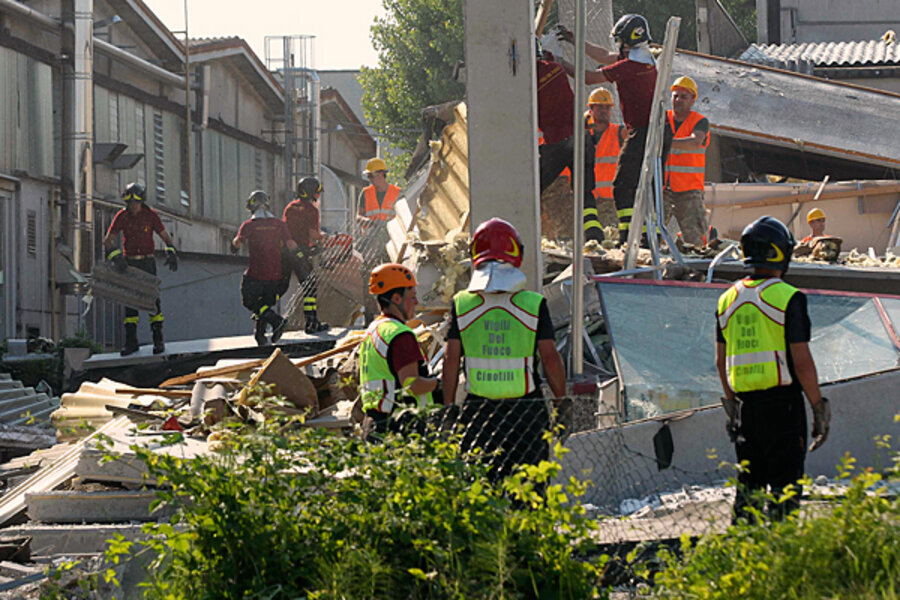Two earthquakes in two weeks test Italians' morale
| Milan, Italy
In Medolla, a small town of 6,000 in central Italy, some workers were afraid to go back to work after an earthquake shook the area last week.
When a second earthquake shook the same region yesterday, a biomedical factory in Medolla collapsed, leaving four dead and one missing. The factory had just reopened its doors after the first temblor.
“The psychological impact of having two earthquakes in a row is a tough one,” says Tommaso Della Longa, a spokesperson for the Italian Red Cross. “Now it's going to be very difficult for us to convince people to go back to their houses.”
The two earthquakes, which claimed at least 24 lives (seven from the first, 17 from the second), hit Emilia Romagna, a wealthy region in the plain known for its food exports and industrial production. This meant that rescue operations could be carried out smoothly, says Mr. Della Longa, especially when compared with the quake that devastated Abruzzo, a much poorer region in the Appennini mountains.
“Emilia Romagna is so well equipped, that after the first earthquake the local authorities could manage the first emergency situation by themselves, without help from the outside,” he says. “But after this new tremor, they need help.”
Many of the buildings that have been severely damaged are factories, raising concerns about the impact on the economy of the region, which is one of the most productive in Italy, and about construction standards.
Yesterday, a prominent union leader criticized business owners for what she viewed as a lack of safety concerns. “They shouldn't have allowed people back to work so early, and I wonder whether factories had the appropriate security standards,” said Susanna Camusso, head of CGIL, Italy's major labor union. The local police have opened an inquiry on the collapse of Haemotronic.
Even before the two earthquakes, some had raised concerns about the state of Italy's infrastructure: According to a study published earlier in May, 6 million buildings in Italy are facing “grave seismic risks,” most of them quickly built after World War II.
Mr. Della Longa says that basic humanitarian needs, such as clean water and shelter, for those who have lost their homes are already covered, and he believes the main challenges are the economy and morale.
“First of all we have to make sure the earth has indeed stopped shaking, which we cannot control," Della Longa says. "Then we must verify that factories and houses are safe and help people overcome their fear and go back to their lives.”
Get daily or weekly updates from CSMonitor.com delivered to your inbox. Sign up today.





